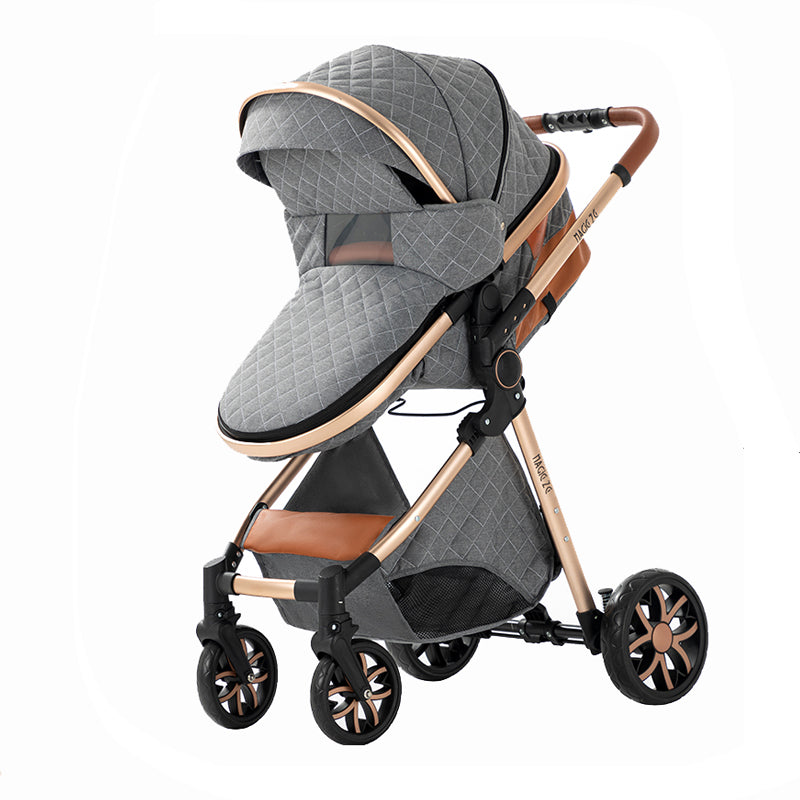Unlock the Secrets of Standard Strollers: Discover the Pros and Cons You Need to Know!
Standard strollers have become a staple for parents and caregivers, providing a reliable means of transporting infants and toddlers. These versatile pieces of equipment not only offer convenience but also play a crucial role in ensuring the comfort and safety of young children during outings. In this article, we will delve into the various aspects of standard strollers, exploring their advantages and disadvantages. By the end, you will have a clearer understanding of whether a standard stroller is the right choice for your family, allowing you to make an informed decision based on your lifestyle and needs.

Understanding Standard Strollers
A standard stroller is typically defined as a four-wheeled baby carriage designed primarily for everyday use. It generally features a sturdy frame, a reclining seat, and often comes equipped with a canopy to shield children from the sun. Standard strollers are designed for children from infancy up to about 50 pounds, making them suitable for a wide range of ages. Unlike travel systems or lightweight strollers, standard strollers are built for durability and comfort, prioritizing a smooth ride over extreme portability. These strollers are most commonly used by parents for walks in the neighborhood, trips to the park, or errands around town. Their design caters to a demographic that values functionality, comfort, and safety, often appealing to parents with active lifestyles who need a reliable stroller for daily use.
Pros of Standard Strollers
Standard strollers come with a host of advantages that make them a popular choice among parents. One of the primary benefits is their ease of use. Most standard strollers are designed with user-friendly features such as adjustable handles and intuitive folding mechanisms, allowing parents to quickly set up or stow away the stroller. Comfort for children is another significant advantage; the ample seating space and padded harnesses ensure that little ones remain cozy during rides. Additionally, standard strollers typically boast generous storage capacity, with baskets and pockets for carrying essential items like diaper bags, snacks, and toys. Safety features such as secure harness systems and reliable braking mechanisms also make them a safer option for parents concerned about their child's well-being.
Convenience and Portability
When it comes to convenience and portability, standard strollers shine brightly. Their design prioritizes easy maneuverability, allowing parents to navigate through crowded places or tight corners with relative ease. Many models are lightweight and equipped with folding mechanisms that make them easy to transport in a car or store at home. Some strollers even offer compatibility with car seats, facilitating a smooth transition from car to stroller without disturbing a sleeping child. This level of convenience is particularly beneficial for parents who frequently travel or are always on the go.
Cons of Standard Strollers
Despite their numerous benefits, standard strollers do have some disadvantages that potential buyers should consider. One of the main drawbacks is bulkiness; many standard strollers can be quite heavy and cumbersome, making them challenging to maneuver in certain situations. Additionally, their larger size can limit terrain adaptability; they may not perform as well on rough or uneven surfaces compared to all-terrain or jogging strollers. Price is another consideration, as some standard strollers can be expensive, leading parents to weigh their budget against the features they desire. For those living in urban environments or smaller homes, the size of a standard stroller might pose storage challenges, which can impact its overall usability.
Space and Storage Limitations
Storing and transporting standard strollers can present challenges, particularly in urban settings where space is limited. Many families find that their strollers take up considerable room in their homes or apartments, leading to clutter and inconvenience. When traveling, fitting a standard stroller into smaller vehicles can also be a struggle, especially if the trunk space is limited. These space and storage limitations can deter some parents from choosing a standard stroller, particularly if they have a more compact lifestyle.
Final Thoughts on Standard Strollers
In summary, standard strollers offer a blend of convenience, safety, and comfort that makes them a popular choice among many parents. While they come with advantages like ease of use, ample storage, and safety features, potential buyers should also consider their drawbacks, such as bulkiness and space limitations. Ultimately, the decision to invest in a standard stroller should be based on your individual needs and lifestyle. By weighing the pros and cons discussed in this article, you can make an informed choice that best suits your family's requirements and ensures enjoyable outings with your little one.



